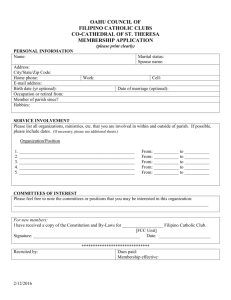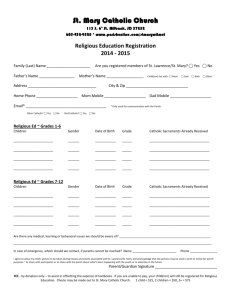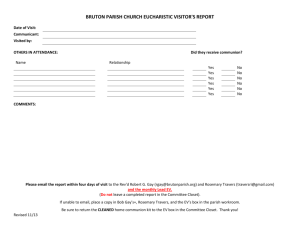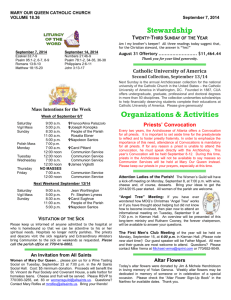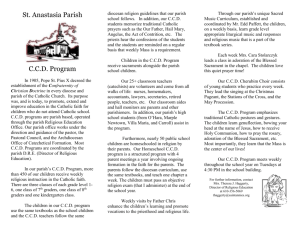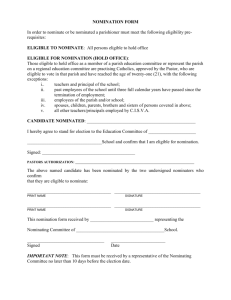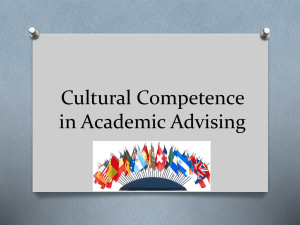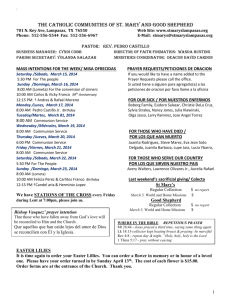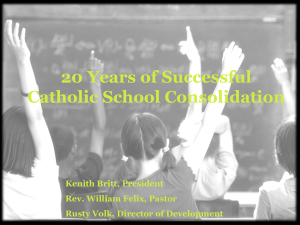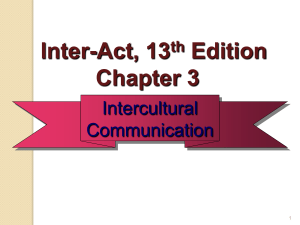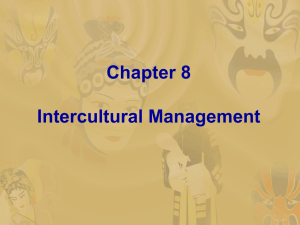BICM PowerPoint - United States Conference of Catholic Bishops
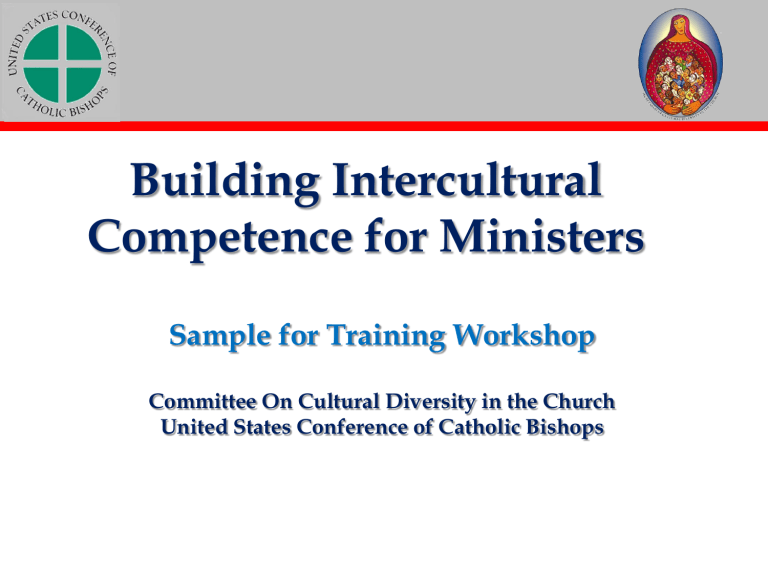
Building Intercultural
Competence for Ministers
Sample for Training Workshop
Committee On Cultural Diversity in the Church
United States Conference of Catholic Bishops
Catholic Families in the United States
According to Cultures/Ethnicities
• African American Family
• Asian Pacific Islander Family
• European American Family
• Hispanic Latino Family
• Native American Family
• Migrants, Refugees, People on the
Move
Underpinnings
Theology for Intercultural Ministry
• Christian Anthropology - (A Christian
Understanding of the Human Person)
• Ecclesiology: The Church as Communion
• Catholicity: Universality, Unity in Diversity
• The Church as missionary
Intercultural Competence
Intercultural Competence is the capacity to:
• Communicate…
• Work…
• Relate…
…across cultural boundaries.
Chapter Outline
• Prejudice, Stereotyping, and
Discrimination
• In-Group and Out-Group Dynamics
• Ways We Judge the “Other”
Iceberg Concept of Culture
Behaviors/Actions
Materials/Objects
Values
Attitudes
Beliefs
Assumptions
Thought Patterns
Perceptions
Concepts
Competencies in Intercultural Group
Communications
Dealing with
Conflict
Communication Styles Based on
Face Management
Meeting and
Decision Making
Leadership
The Mutual Invitation Method
(Eric Law)
RESPECTFUL COMMUNICATION GUIDELINE
R
: take RESPONSIBILITY for what you say and feel, and speak with words others can hear and understand
E
: use EMPATHETIC listening, not just words but also feelings being expressed, non-verbal language including silence
S
: be SENSITIVE to differences in communication styles
P
: PONDER on what you hear and feel before you speak
E
: EXAMINE your own assumptions and perceptions
C
: keep CONFIDENTIALITY
T
: TRUST the process because we are NOT here to debate who is right or wrong but to experience true dialogue.
From Newcomers to Stewards of the Faith Community
Belonging
Ownership
Solidarity: “a firm and persevering determination to commit one-self <and a whole faith community> to the common good”
Communion: The communion of the Church, rooted in God’s love, is called to offer all people the sense of identity, purpose and community they seek.
Catholic
Identity
Encounter with Christ – Catholic Identity: Conversion means to “turn one’s mind and heart around.”
Stewardship
Conversion
Catholic
Identity
Encounter
Cycle for Ecclesial
Integration/Inclusion
Hospitality
Sense of belonging
Communion
Solidarity
Ownership
Mission
Stewardship
Recognize and affirm cultural, linguistic and racial differences as a gift from God not a problem to be solved
Promote the formation of culturally specific ministries, parish groups and apostolic movements as means for conversion and community building
Avoid the temptation to expect others to assimilate into a one-size- fits-all youth group, program or activity
Be aware of your own cultural heritage
Use the concept of inculturation of the Gospel
Be willing to be a bridge builder rather than a gatekeeper
Avoid the tendency to see your culture as better or more valuable than the cultures of others, and the we—they language
Commit to the spirit of mission of the New
Evangelization and its ongoing transformation of all cultures by the Gospel values
First listen and welcome the unique perspectives of diverse parishioners you are trying to reach
Include them, from the beginning, in the development of plans, programs and activities
Avoid planning for others and judging them when they don’t show up to your activity
Recognize the unique experiences, needs, and aspirations of each cultural/ethnic community in your parish
Understand that the existence of more than one cultural group in your parish as a blessing
Promote the formation of culturally specific groups and apostolic movements
Avoid the perception that allowing the formation of culturally specific groups creates division or separation
Commit to creating welcoming spaces for all Catholic people living in your parish
Understand the way in which people from different cultures view leadership, organize themselves and make decisions
Identify indigenous leaders and mentor them into leadership positions in ministry within their own cultural/ethnic community and in the parish as a whole
Avoid a mentality of scarcity- ‘there is not enough for everyone’- and foster a vision of mission and growth that generates more resources
